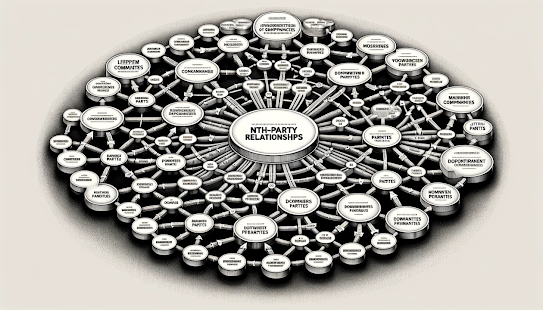Europe's Most Influencial CISOs of the year 2024
This article republishes an interview originally conducted by CIO-World, in which I was recognized as one of Europe’s Most Influential CISOs of 2024.
The discussion goes beyond technical security and focuses on leadership: the core capabilities a CISO needs today, how regulatory frameworks can be used as strategic enablers of resilience, and how security leaders can operate credibly and effectively within the C-suite. It also explores the growing convergence of technology, governance, and compliance.
The original can be found at CIO-World.
As financial technology (FinTech) evolves rapidly, it faces an increasing number of cyber threats. Cybercriminals are constantly finding new ways to exploit weaknesses in payment systems, putting billions of dollars and countless identities at risk. A staggering statistic reveals that up to 75% of customers worldwide now use at least one FinTech service, a number projected to grow as more people embrace digital payments and online banking.
 |
| Source: CIO World |
Meet Thierry Zoller, the Chief Information Security Officer at J.P. Morgan Mobility Payments Solutions S.A. (Red. now Julius Baer) , whose mission is to stay one step ahead of these digital predators. With nearly three decades of experience in cybersecurity, Zoller brings a unique blend of technical expertise and strategic vision to one of the world’s largest financial institutions. His journey from a curious teenager in Luxembourg to a leading figure in global information security is an example of the power of passion and perseverance.
Thierry’s fascination with technology began early, driving him to explore the inner workings of systems and networks. This curiosity led him to dive deep into reverse engineering and system vulnerability analysis, skills that would become invaluable in his future roles.
His career has been marked by a series of high-profile positions, including Head of Security Risk and Compliance Europe for Amazon and CISO for Amazon Payments. These experiences have honed his ability to navigate the complex intersection of technology, finance, and security.
At J.P. Morgan, he faces his most challenging task yet: securing the future of mobile payments in an increasingly cashless world. His approach combines futuristic technology with a deep understanding of human behavior, recognizing that the weakest link in any security system is often the user.
Thierry’s impact extends far beyond his corporate role. As a prolific blogger and researcher, he has coordinated the disclosure of over 100 vulnerabilities and released numerous free security tools. His work has been cited in books and peer-reviewed papers, cementing his status as a thought leader in the field.
The 45-year-old security expert’s commitment to knowledge sharing has been a cornerstone of his career. This philosophy drives his continued efforts to educate and empower the next generation of cybersecurity professionals, contributing significantly to the global information security community.
Let us learn more about his journey:


.png)



_(thousands)_RYB2016.png)


.png)

